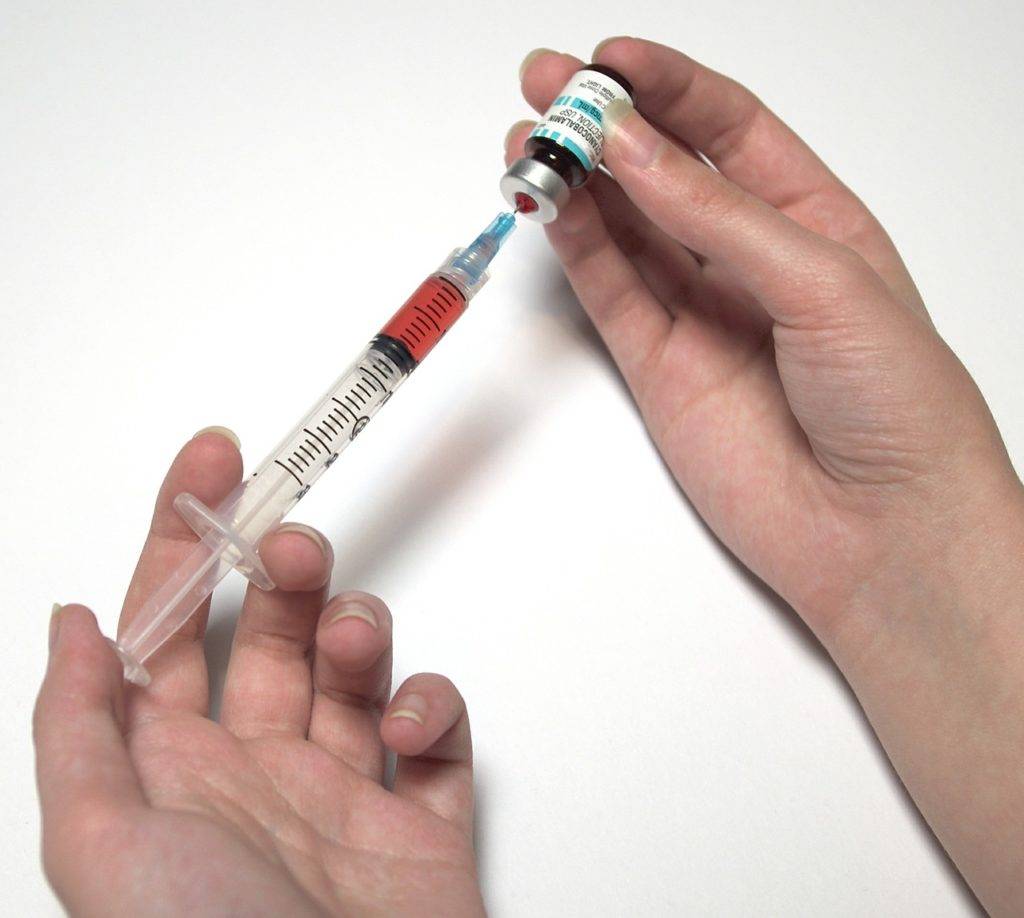Vaccines Aren’t Just for Kids: Why Adults Need the Tdap Booster Too
When most people think about vaccines, they picture kids at the doctor’s office getting their shots. But here’s something surprising—grown-ups need vaccines too. One of the most important ones? The Tdap booster. This powerful vaccine protects against three serious diseases: tetanus, diphtheria, and pertussis (also known as whooping cough).

Doctors recommend that adults get the Tdap booster every 10 years to stay protected and help shield their families—especially newborn babies. This post will break down
- What the Tdap vaccine does
- Why adults need it (even if you had shots as a kid)
- How getting vaccinated helps protect fragile infants
- Who needs it, when, and how often
So if you’re wondering whether you’re due for a booster or want to keep your family safe, this guide is for you. Let’s dive in and learn how one simple shot every 10 years can make a huge difference!
What Does the Tdap Vaccine Protect Against?
The Tdap vaccine is a triple threat. It protects you from tetanus, diphtheria, and pertussis (whooping cough). These aren’t old-timey diseases—they’re real threats, especially for babies and older adults. Let’s break down what each one does:
1. Tetanus: The “Lockjaw” Danger
Tetanus comes from bacteria found in soil, dust, or manure. It can sneak into your body through a simple cut or scrape. Once inside, it releases a toxin that causes painful muscle tightening—especially in the jaw, which is why it’s nicknamed “lockjaw.” Without treatment, tetanus can cause breathing problems or even death.
2. Diphtheria: More Than a Sore Throat
Diphtheria spreads through coughing or sneezing. It can cause a thick coating in the throat, making it hard to breathe or swallow. It may also lead to heart or nerve damage. This illness used to be one of the top killers of kids, but vaccines have made it rare—let’s keep it that way!

3. Pertussis: The Dangerous Whooping Cough
Pertussis, or whooping cough, starts off like a cold, but it quickly turns serious. The cough can become so strong that it’s hard to breathe, eat, or sleep. It’s most dangerous for babies under 6 months, who can’t be fully vaccinated yet. That’s why adults getting vaccinated helps protect little ones.
The Resurgence of Pertussis
In recent years, pertussis cases have been on the rise. In 2024, the U.S. saw over 17,600 cases, a significant increase from previous years. Babies under 2 months old are particularly vulnerable since they’re too young to be vaccinated.
Why Adults Need a Tdap Booster Shot
You might be thinking, “Didn’t I already get this vaccine as a kid?” The answer is probably yes—but immunity wears off over time. That’s why adults need a Tdap booster every 10 years to stay fully protected. Here are three powerful reasons why this matters:
1. Your Childhood Shots Don’t Last Forever
Even if you got your full set of vaccines as a child, the protection from pertussis, diphtheria, and tetanus doesn’t stick around for life. By the time you’re an adult, your immunity has likely faded. The Tdap booster brings your protection back up to strong levels, so you’re covered.
2. You’re Protecting Yourself From Real Threats
These aren’t just “kids’ diseases.” All three can hit adults hard, especially if your immune system is weaker due to age or chronic illness. For example:
- Tetanus can lead to weeks in the hospital and even death.
- Diphtheria still pops up in parts of the world and can spread quickly.
- Pertussis causes violent coughing fits that can last for months.
Getting the booster helps you avoid these painful and sometimes life-threatening illnesses.
3. You’re Helping Protect Babies: The Power of “Cocooning”
One of the most important reasons to stay up-to-date on your Tdap booster is to protect the babies in your life. Newborns don’t start their DTaP vaccine series until they’re 2 months old. That leaves a dangerous gap where they’re completely unprotected.
But when parents, grandparents, babysitters, and other close contacts get vaccinated, they create a protective “cocoon” around the baby. This strategy, called “cocooning,” is proven to reduce the spread of whooping cough to newborns. According to the CDC, most babies who get pertussis catch it from someone in their own home.
Pro Tip: If there’s a new baby in your family, ensure everyone around them is up to date on their Tdap booster. It’s one of the best gifts you can give a newborn!
The 10-Year Rule: Why Timing Matters for Your Tdap Booster
You might wonder, “Why every 10 years?” It’s a great question—and the answer is all about keeping your protection strong and steady.
How Long Does the Tdap Vaccine Last?
The protection from the Tdap vaccine starts to fade over time. Doctors have found that its ability to guard you—especially against tetanus and diphtheria—begins to weaken after about 10 years. That’s why the CDC recommends a Tdap booster shot every decade.
It refreshes your body’s immune response and makes sure you’re still ready to fight off these serious diseases.
What Happens If You Miss a Booster?
Life gets busy, and it’s easy to forget about a vaccine you only need once every 10 years. But skipping your booster means
- You’re no longer fully protected from pertussis, tetanus, and diphtheria.
- You might unknowingly spread whooping cough to vulnerable people, especially babies.
- You won’t be protected if you get a wound that puts you at risk for tetanus.
If it’s been more than 10 years since your last Tdap or Td shot—or if you can’t remember the last time you got one—it’s a good idea to get one now.
Bonus Tip: Extra Boosters After an Injury
If you get a deep or dirty wound, your doctor might recommend a Tdap or Td booster even if it hasn’t been 10 years. That’s because tetanus bacteria love to live in places like soil, dust, and rust, and they can enter your body through cuts.
Quick Check: Ask your doctor during your next visit, or look at your immunization record. If it’s been more than 10 years, you’re due!
Who Should Get the Tdap Vaccine (and When)
Now that you know why the Tdap booster is important, who needs it and when to get it. The good news? Most people only need it every 10 years—unless you fall into one of these special groups.
1. Preteens and Teens: The First Tdap Dose
Age: 11–12 years
Most kids receive early protection through the DTaP vaccine series when they’re little. But by the time they hit middle school, immunity begins to fade. That’s why the CDC recommends a single dose of Tdap at age 11 or 12 to keep them covered through the teen years.
2. Adults: The 10-Year Booster
Age: 18 and older
Every adult should have received at least one dose of Tdap. If you haven’t, it’s time to get it—no matter how long it’s been. After that, you should get a Tdap or Td booster every 10 years. Tdap vs. Td? We’ll cover the difference in the next section—but Tdap is usually the better choice when possible.
3. Pregnant Women: Every Pregnancy Counts
When: Weeks 27–36 of each pregnancy
One of the best things you can do for your baby before they’re born is to get a Tdap vaccine during your third trimester. This gives your baby early protection against whooping cough through the antibodies you pass to them during pregnancy.
According to the CDC, Tdap is safe and highly recommended during every pregnancy, even if you’ve had a Tdap shot in the past. This helps protect your baby during their first few months when they’re most vulnerable.
4. Caregivers, Grandparents, and Close Contacts of Babies
When: As soon as possible, if not up-to-date
If you’ll be spending time around a newborn—especially in the first six months—make sure you’re current on your Tdap vaccine. Pertussis can be deadly for babies, and adults are often the ones who accidentally pass it to them. Don’t wait for an outbreak—get vaccinated before the baby comes home.
Td vs. Tdap for Adults
Both Td and Tdap vaccines protect against tetanus and diphtheria. However, Tdap also includes protection against pertussis. For routine adult boosters, Tdap is generally preferred unless there’s a specific reason not to use it.
Safety and Side Effects
The Tdap vaccine is safe for most people. Common side effects are mild and may include
- Pain, redness, or swelling at the injection site
- Mild fever
- Headache
- Fatigue
Serious side effects are rare. The benefits of vaccination far outweigh the risks.
One Simple Shot, a Lifetime of Protection for Your Family

Getting your Tdap booster every 10 years is one of the easiest and most powerful ways to stay healthy—and to protect the people you love, especially babies.
Remember:
- Childhood vaccines wear off.
- Diseases like whooping cough, tetanus, and diphtheria are real and can be deadly.
- You could unknowingly spread whooping cough to an infant who’s too young to be vaccinated.
But with one quick shot every decade, you can:
- Protect yourself from serious illness
- Protect your children, grandkids, and vulnerable loved ones
- Help keep your community safe
Take Action Today: Are You Due for a Booster?
Don’t wait until there’s an outbreak or an injury to find out. Check your immunization record now. If it’s been 10 years—or you’re not sure—go ahead and schedule your Tdap booster.
✅ Next Step: Call your doctor or local clinic. Or, if you’re near Omega Pediatrics, ask us about updating your vaccines. We’re here to help you stay protected!
More ways to protect your family’s health? Check out these helpful resources from Omega Pediatrics:
- The Vital Role of Routine Vaccinations for Children’s Health and Herd Immunity
- Top 7 Reasons to Schedule Pediatric Appointments for Your New Baby
- 5 Benefits of Timely Immunizations: Why Staying on Schedule Matters
Health Is a Gift—Protect It
You take care of your family every day. Getting your Tdap booster is one more way to show them you care. It’s quick, it’s easy, and it could save a life.
You’ve got the power to protect. Use it.



